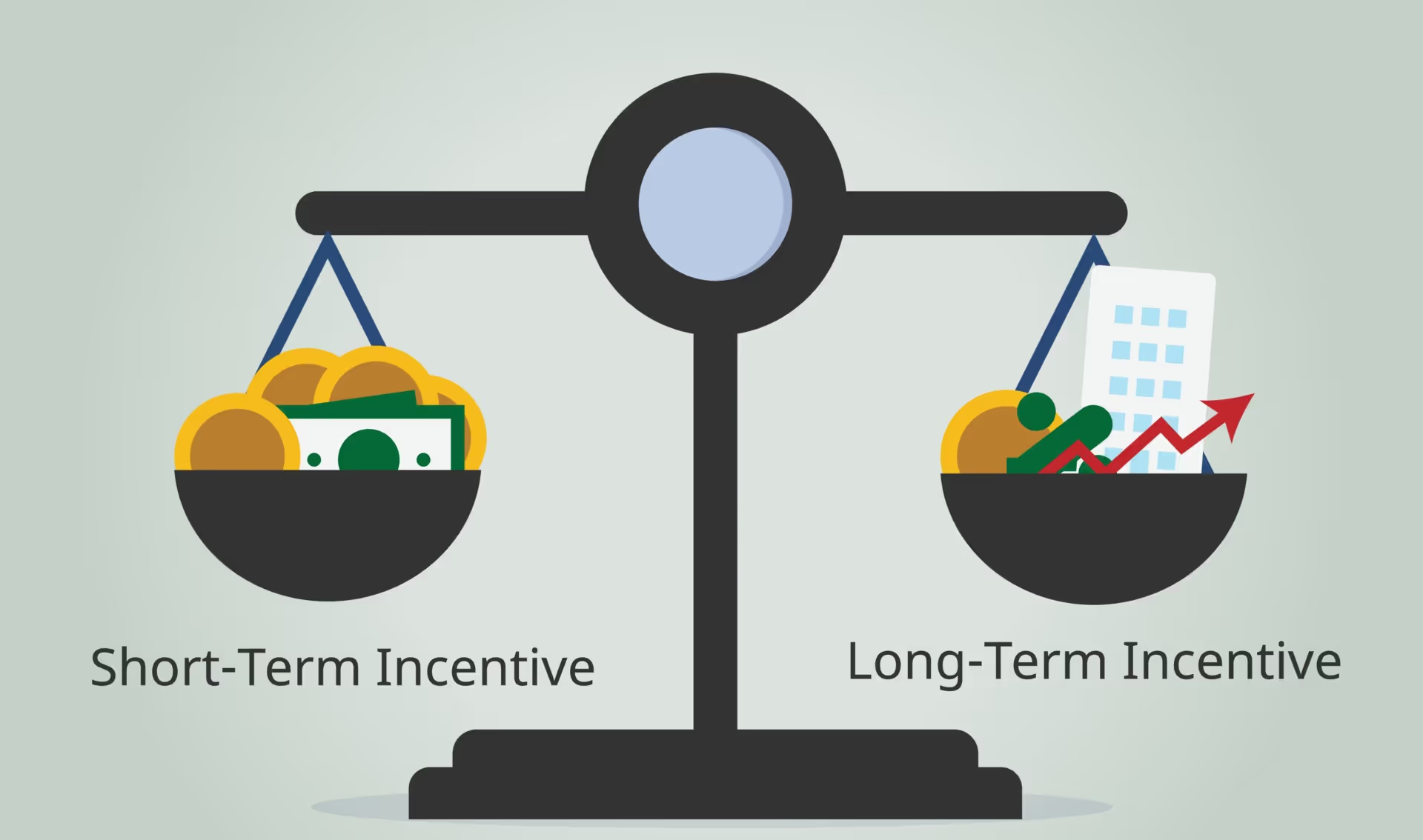In today's competitive business landscape, compensation planning plays a pivotal role in attracting and retaining top talent while driving performance. Long-term compensation strategies are particularly crucial in this regard, as they provide organizations with a framework to reward and motivate employees over an extended period. By implementing effective long-term compensation strategies, companies can create a competitive advantage, enhance talent retention, and foster a high-performance culture.
Overview of the impact of compensation on talent retention and performance
Compensation has a direct and significant impact on talent retention and performance within an organization. Employees seek fair and competitive compensation packages that recognize their skills, experience, and contributions. When compensation aligns with industry standards and is perceived as equitable, it enhances the organization's ability to attract and retain top talent.
Moreover, compensation serves as a powerful motivator that drives employee performance. By linking compensation to individual and organizational goals, employees are incentivized to strive for higher levels of achievement. Long-term compensation strategies offer a sustainable approach by focusing on rewards that extend beyond short-term financial gains, instilling a sense of loyalty and commitment among employees.

Understanding Long-Term Compensation Strategies
Long-term compensation strategies encompass a range of rewards and incentives designed to encourage employee loyalty, drive performance, and align employees' interests with the long-term success of the organization. These strategies typically involve compensation elements that vest or mature over an extended period, creating a sense of continuity and commitment.
The objectives of long-term compensation strategies include attracting and retaining top talent, promoting employee engagement and loyalty, incentivizing long-term goal achievement, and aligning employees' efforts with the organization's objectives.
Differentiating long-term compensation from short-term incentives
It is essential to differentiate long-term compensation from short-term incentives. While short-term incentives, such as bonuses or performance-based rewards, focus on immediate goals and results, long-term compensation strategies take a more comprehensive approach. They consider the long-term value employees bring to the organization and provide rewards that accrue over time, often tied to milestones, tenure, or achievement of strategic objectives.
Long-term compensation is designed to create a sense of ownership, encourage commitment, and foster a mutually beneficial relationship between the organization and its employees.
Benefits of implementing long-term compensation strategies
Implementing effective long-term compensation strategies yields numerous benefits for organizations. Firstly, it enhances talent attraction and retention. Long-term incentives act as powerful magnets, enticing top performers and high-potential employees to join and stay with the organization.
Secondly, long-term compensation strategies promote employee loyalty and commitment. By providing rewards that materialize over time, employees develop a vested interest in the success of the organization and are more likely to remain engaged and dedicated to achieving long-term objectives.
Lastly, long-term compensation strategies drive performance and productivity. Employees are motivated to perform at their best to earn the rewards that come with long-term success. This heightened motivation leads to increased employee engagement, improved productivity, and a more performance-driven culture within the organization.
.avif)
Retaining Top Talent through Long-Term Compensation
- The role of compensation in attracting and retaining top talent - Attracting and retaining top talent requires a compelling compensation package. Competitive base salaries and long-term compensation incentives are essential components that entice high-caliber candidates to choose and stay with an organization. Top talent seeks opportunities for growth, recognition, and financial security, all of which can be addressed through a well-designed long-term compensation strategy.
- Linking long-term incentives with employee loyalty and commitment - Long-term incentives serve as a powerful tool for fostering employee loyalty and commitment. When employees have a stake in the organization's long-term success, they develop a sense of ownership and are more likely to align their interests with the company's objectives. Long-term compensation plans encourage employees to stay with the organization and actively contribute to its growth and prosperity.
Driving Performance with Long-Term Compensation
- How long-term incentives motivate employees to achieve higher performance levels - Long-term incentives provide a powerful motivation for employees to achieve higher performance levels. By offering rewards that materialize over an extended period, employees are encouraged to demonstrate sustained excellence and contribute to the organization's long-term success. The prospect of significant financial and non-financial rewards serves as a catalyst for increased effort, productivity, and innovation.
- Designing performance-based compensation plans to align with organizational goals - Designing performance-based compensation plans is crucial for driving performance. By aligning compensation with organizational goals, employees understand how their efforts contribute to the overall success of the organization. Clear performance metrics and objective criteria enable employees to track their progress, receive feedback, and continuously strive for improvement.
- The impact of long-term compensation on employee engagement and productivity - Long-term compensation has a significant impact on employee engagement and productivity. When employees see a clear path for their long-term financial well-being and career advancement, they become more engaged, committed, and motivated to deliver exceptional results. Long-term compensation fosters a sense of purpose, job satisfaction, and professional growth, which, in turn, positively impacts productivity and overall organizational performance.
Elements of Effective Long-Term Compensation Strategies
- Equity-based compensation (e.g., stock options, restricted stock units) - Equity-based compensation, such as stock options or restricted stock units, is a common element of long-term compensation strategies. These incentives provide employees with ownership stakes in the organization, aligning their interests with the company's long-term success. Equity-based compensation rewards employees for their loyalty and performance while fostering a sense of ownership and commitment.
- Performance-based incentives (e.g., bonuses tied to long-term goals) - Performance-based incentives tied to long-term goals are instrumental in driving desired outcomes. By linking bonuses or rewards to the achievement of specific long-term objectives, organizations incentivize employees to work collectively towards shared goals. Performance-based incentives promote a results-oriented culture and encourage employees to think strategically and make sustained efforts.
- Career development and advancement opportunities - Long-term compensation strategies should include provisions for career development and advancement opportunities. Providing employees with a clear path for growth and advancement demonstrates the organization's investment in their long-term success. Opportunities for promotions, skill development, and professional growth incentivize employees to perform at their best and remain committed to the organization.
- Employee benefits and perks - In addition to financial incentives, long-term compensation strategies can incorporate employee benefits and perks. These may include healthcare coverage, retirement plans, flexible work arrangements, or wellness programs. By offering a comprehensive benefits package, organizations enhance employee satisfaction, well-being, and overall retention.
- Work-life balance initiatives - Recognizing the importance of work-life balance, organizations can integrate work-life balance initiatives into their long-term compensation strategies. These initiatives may include flexible scheduling, remote work options, parental leave policies, or sabbatical programs. By promoting work-life balance, organizations foster a positive
Overcoming Challenges in Implementing Long-Term Compensation Strategies
- Ensuring fairness and transparency in compensation practices - One of the key challenges in implementing long-term compensation strategies is ensuring fairness and transparency in the compensation process. It is essential to establish clear guidelines and criteria for determining long-term incentives to avoid any perception of favoritism or bias. Organizations should communicate the compensation structure openly, providing employees with a clear understanding of how their rewards are determined. By promoting fairness and transparency, organizations foster trust and confidence in the long-term compensation planning process.
- Communicating the value and purpose of long-term compensation to employees - Another challenge is effectively communicating the value and purpose of long-term compensation to employees. Employees need to understand how long-term incentives align with the organization's goals and their own career progression. Organizations should provide comprehensive and ongoing communication about the benefits of long-term compensation, emphasizing how it rewards loyalty, drives performance, and contributes to their long-term financial security. Clear and consistent communication helps employees see the value in their commitment to the organization's long-term success.
- Managing budget constraints and financial sustainability - Implementing long-term compensation strategies requires careful budget planning to ensure financial sustainability. Organizations must balance the allocation of resources for long-term incentives while considering other operational and strategic priorities. By conducting a thorough analysis of financial capabilities and forecasting potential outcomes, organizations can develop a realistic and sustainable long-term compensation plan. This may involve setting realistic targets, phasing the implementation of incentives, and adjusting compensation levels based on financial performance.
- Evaluating and adjusting compensation strategies over time - Long-term compensation strategies need to be evaluated regularly to assess their effectiveness and relevance. Organizations should gather feedback from employees, monitor market trends, and analyze the impact of incentives on talent retention and performance. This data-driven approach allows organizations to make informed decisions and adjust compensation strategies accordingly. Flexibility and adaptability are key to ensuring that long-term compensation plans remain aligned with the organization's evolving needs and the expectations of its workforce.
Best Practices for Implementing Long-Term Compensation Strategies
- Aligning compensation with company values and culture - When implementing long-term compensation strategies, it is crucial to align them with the organization's values and culture. The incentives should reflect the organization's mission, vision, and desired behaviors. By ensuring that the compensation plan aligns with the company's identity, organizations reinforce their cultural values and reinforce the desired employee mindset and performance.
- Customizing compensation plans to cater to different employee segments - Employees have diverse needs and preferences, and a one-size-fits-all approach may not be effective. Organizations should customize compensation plans to cater to different employee segments, taking into account factors such as job roles, experience levels, and performance levels. By tailoring compensation to individual and group needs, organizations can better motivate and engage employees across the board.
- Regularly reviewing and updating compensation strategies to stay competitive - The business landscape is constantly evolving, and organizations must regularly review and update their compensation strategies to remain competitive. By monitoring industry trends, conducting market analyses, and benchmarking against competitors, organizations can ensure that their compensation plans remain attractive and competitive. Regular reviews enable organizations to identify areas for improvement and make necessary adjustments to retain top talent.
- Seeking employee feedback and involving them in the design process - Employees should be actively involved in the design process of long-term compensation strategies. Seeking their feedback and input not only enhances transparency but also increases employee ownership and satisfaction with the compensation plans. By involving employees in the decision-making process, organizations gain valuable insights into their preferences, aspirations, and motivational factors, leading to more effective and impactful compensation strategies.
Conclusion
Long-term compensation planning is crucial for organizations aiming to retain top talent and drive performance. It provides a framework for rewarding and motivating employees over an extended period, fostering loyalty, commitment, and alignment with organizational goals.
Long-term compensation strategies are instrumental in attracting and retaining top talent, creating a competitive advantage in the market. They serve as powerful motivators that drive performance and productivity, encouraging employees to achieve higher levels of success and contribute to the long-term success of the organization.
To thrive in today's dynamic business environment, organizations must prioritize and invest in effective long-term compensation strategies. By aligning compensation with company values, customizing plans for different employee segments, regularly reviewing and updating strategies, and involving employees in the design process, organizations can create a culture of high performance, attract and retain top talent, and achieve sustainable success.
Find out how Compport can help you manage all your Compensation Management and Rewards Tech needs, book a demo today!
%2520(6)%2520(2).avif)
Frequently Asked Questions
Q1. How do long-term compensation strategies differ from short-term incentives?
Answer: Long-term compensation strategies take a comprehensive approach that considers the long-term value employees bring to the organization. They provide rewards that accrue over time, often tied to milestones, tenure, or achievement of strategic objectives. In contrast, short-term incentives focus on immediate goals and results.
Q2. What are the benefits of implementing long-term compensation strategies?
Answer: Implementing effective long-term compensation strategies enhances talent attraction and retention. It promotes employee loyalty and commitment, driving performance and productivity. Long-term compensation strategies create a sense of ownership, foster a high-performance culture, and contribute to the organization's overall success.
Q3. How does long-term compensation help retain top talent?
Answer: Long-term compensation, including competitive base salaries and incentives, is crucial in attracting and retaining top talent. By offering opportunities for growth, recognition, and financial security, long-term compensation strategies provide the incentives that high-caliber candidates seek in choosing and staying with an organization.
Q4. What are the key elements of effective long-term compensation strategies?
Answer: Effective long-term compensation strategies include equity-based compensation (e.g., stock options, restricted stock units), performance-based incentives tied to long-term goals, career development and advancement opportunities, employee benefits and perks, and work-life balance initiatives. These elements combine to create a comprehensive and attractive compensation package
Q5. Why is it important to evaluate and adjust long-term compensation strategies over time?
Answer: Long-term compensation strategies need to be evaluated regularly to assess their effectiveness and relevance. By gathering feedback from employees, monitoring market trends, and analyzing the impact of incentives on talent retention and performance, organizations can make informed decisions and adjust compensation strategies accordingly. This ensures that long-term compensation plans remain aligned with the organization's evolving needs and the expectations of its workforce.







.svg)


%20(54).png)
%20(53).png)
%20(52).png)
